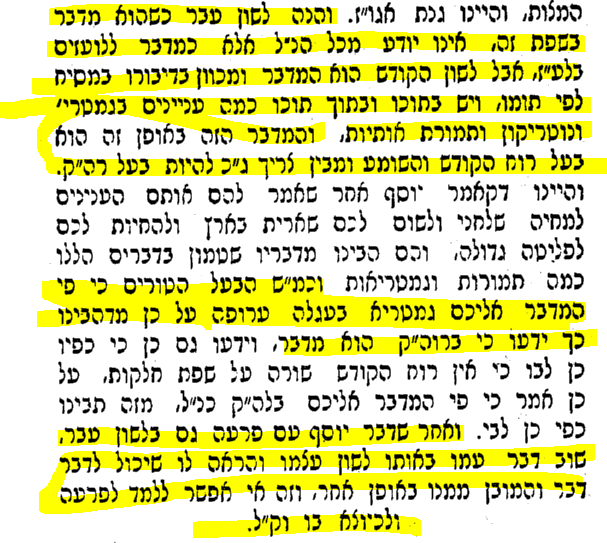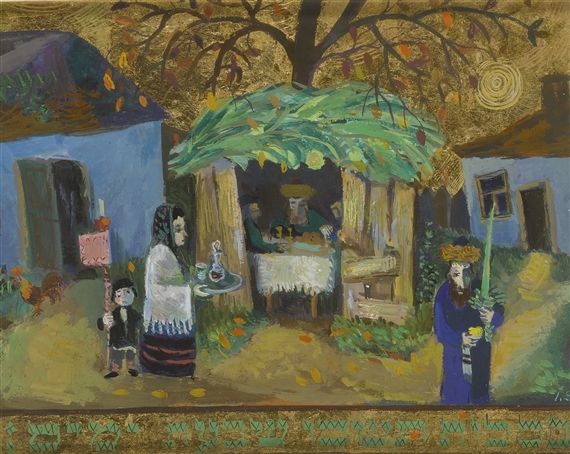BS”D
Sukkah 47a
Teves 17, 5783. January 10, 2023
1 – We reviewed the fascinating Ohr Sameach which we discussed last week about the חכמים that didn’t sit in a Sukkah until שמיני עצרת because they ‘were out in the marshes’.
2 – One of the most famous lines in Sha”s:
וְהִלְכְתָא: מֵיתַב יָתְבִינַן, בָּרוֹכֵי לָא מְבָרְכִינַן.
And the Halachah is that we sit in the Sukkah [on Shemini Atzeres] but we do not recite a Brachah [לישב בסוכה]
Now, what could be more clearer than that? And yet…… not everyone does that.
3 – The Shulchan Aruch (668) says very clearly:
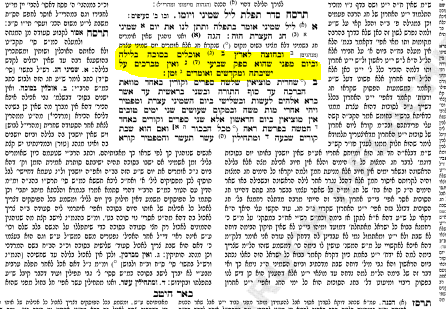
See מגן אברהם:
Some do not sit in the סוכה for the night meal but do sit for the day meal. The Tur says that this Minhag is not proper. But some people in our country do so because they saw their parents act so. The Beis Yosef explains their מנהג (Night no – day yes) because sitting in the Sukkah and saying שהחיינו for שמיני עצרת is a contradiction.
Asks the מגן אברהם- sitting in the Sukkah by day is also a contradiction since we say in Bentching שמיני עצרת החג הזה…?
He suggests that the issue is בל תוסיף. Skipping the Sukkah for the night meal shows we are aware that our sitting in the Sukkah the next day is only due to a ספק, maybe it’s the 7th day of Sukkos.

[It only looks like בל תוסיף. See previous Shiur]
However he concludes, the Tur is right as the Beis Yosef agrees based on the simple meaning in the Gemara. Most other פוסקים also state that all the meals should be eaten in the Sukkah.
4 – We mentioned the GR”A that says that one must not only eat but also sleep in the Sukkah on שמיני עצרת. He adds that even if one had reason not to sleep in the Sukkah all week he must do so on שמיני עצרת because ערבין עלי דברי סופרים!!
5- We discussed the קרבן נתנאל who was one of the first to give a reason for not sitting in the Sukkah on שמיני עצרת.
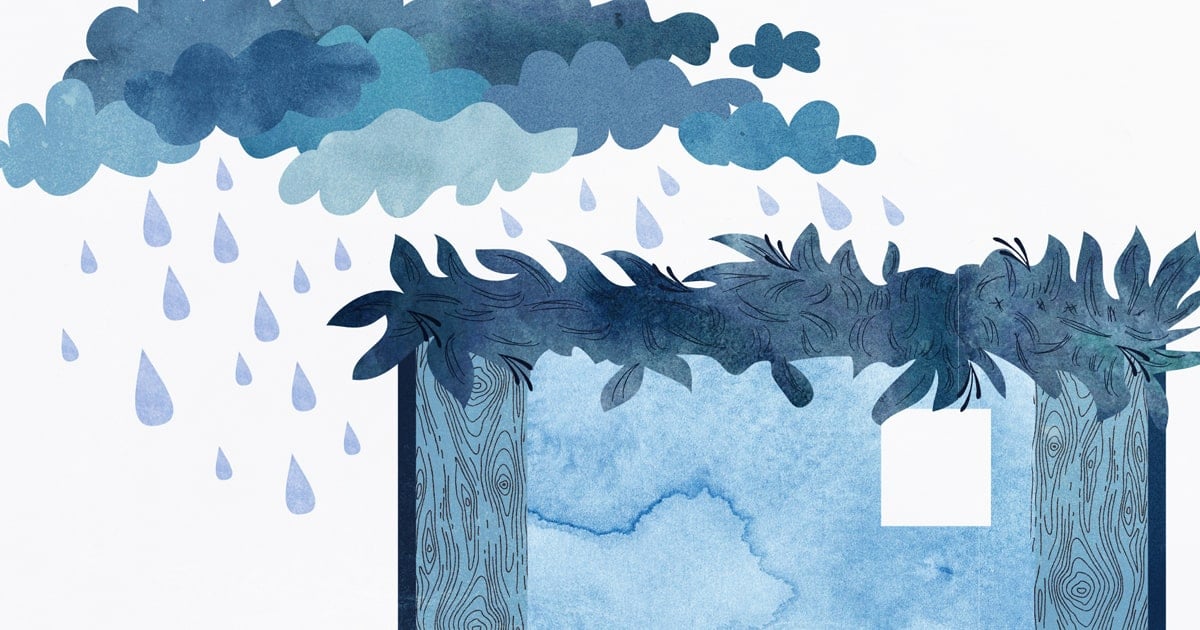
Taking into account the בל תוסיף issue and in addition (as per the Rif) to ‘embarrassing שמיני עצרת’, sitting in a Sukkah when it is cold, windy and uncomfortable is very blatant that one is doing it לשם מצוות סוכה (as mentioned in Tosfos).
Therefore one should not sit in the Sukkah.

6- We mentioned the Munkatcher’s long תשובה in the מנחת אלעזר (See fascinating Video of his daughter’s wedding in Munkatch).

He tries to explain the Minhag of some חסידים to eat only some or all of the שמיני עצרת meals indoors based on the קרבן נתנאל.
He adds that the גמרא was referring to warm climates like in Iraq and the Beis Yosef in Israel. People living in the northern parts of the world where on Sukkos it’s cold makes sense to eat indoors.
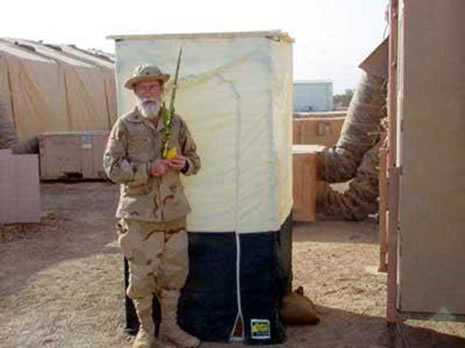
He quotes from the ספר הפרדס that some ראשונים of France ate the night meal indoors and the daytime ones in the Sukkah.

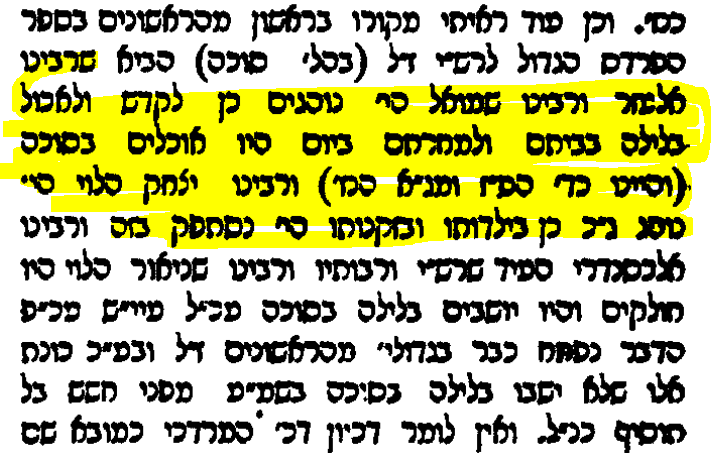
7- We moved on to the חידוש of רבי יוחנן that on Shemini Atzeres one needs to say שהחיינו since it is a Yom Tov in its own right.
We discussed that the Torah mentions Shemini Atzeres in a way that can be construed to be either an ‘extension’ of Sukkos or a new Yom Tov on the 8th day that happens to be the day after Sukkos – but in reality it stands on its own as a separate Yom Tov.
To be continued next week IY”H.
8- Parshas ויחי.
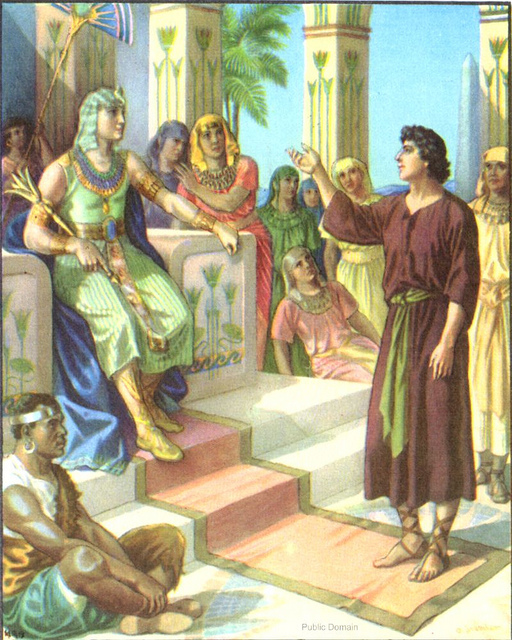
We concluded with the solid question of the Chasam Sofer. דרשות ע’ צט
For at least 26 years Yosef kept his promise to פרעה not to divulge that he, Yosef, spoke a language that was not known to פרעה.
אִישְׁתַּעִי אִיהוּ בִּלְשׁוֹן הַקֹּדֶשׁ לָא הֲוָה קָא יָדַע מַאי הֲוָה אָמַר אֲמַר לֵיהּ אַגְמַרִי אַגְמְרֵיהּ וְלָא גְּמַר אֲמַר לֵיהּ אִישְׁתְּבַע לִי דְּלָא מְגַלֵּית אִישְׁתְּבַע לוֹ
Joseph then spoke in the sacred tongue, Hebrew, and Pharaoh did not know what he was saying. Pharaoh said to him: Teach me that language. He taught him, but he could not learn it. Pharaoh said to him: Swear that you will not reveal that I do not know this language. And Yosef swore to פרעה.
כִּי אֲמַר לֵיהּ אָבִי הִשְׁבִּיעַנִי לֵאמֹר אֲמַר לֵיהּ זִיל אִיתְּשִׁיל אַשְּׁבוּעֲתָךְ אֲמַר לֵיהּ וְאִיתְּשִׁיל נָמֵי אַדִּידָךְ וְאַף עַל גַּב דְּלָא נִיחָא לֵיהּ אֲמַר לֵיהּ עֲלֵה וּקְבֹר אֶת אָבִיךָ כַּאֲשֶׁר הִשְׁבִּיעֶךָ
Years later, when Joseph said to Pharaoh: “My father made me swear, saying” (Genesis 50:5) that I would bury him in Eretz Yisrael, Pharaoh said to him: Go request the dissolution of your oath. Joseph said to him: And should I also request dissolution for the oath that I gave you? And consequently, even though Pharaoh was not amenable to letting Joseph go, he worried that Joseph would then request dissolution for the oath that he had made, and Pharaoh therefore said to him: “Go up and bury your father according to what he made you swear” (Genesis 50:6).

פרעה lived in fear least Yosef publicize his ignorance of לשון הקודש.
Asks the Chasam Sofer: What was so difficult for פרעה, who knew 69 languages, to learn another language? Why didn’t he ask Yosef to teach him again and again ? In a mere few months he would have picked up לשון הקודש.
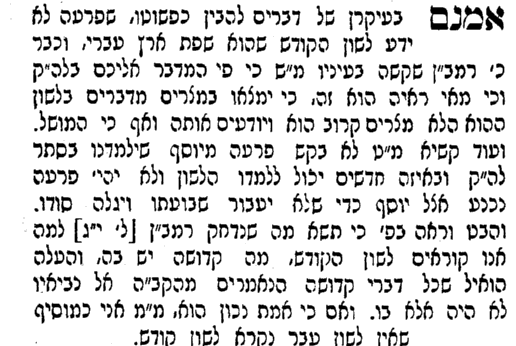
In short, the Chasam Sofer answers that there are two languages. לשון עברי and לשון קודש.
The first is the plain simple language that can be spoken by all. (And perhaps פרעה did indeed know this).
Then there is true לשון הקודש. That is the holiness and intricate meaning that every word contains. For someone to truly speak and understand this language one needs רוח הקודש.
Such as גימטריאות – numerology, of every word and its meaning.

Example – בזאת יבוא אהרן. The 410 years of the 1st בית המקדש is hidden in the word בזאת, which equals 410.
Then there is נוטריקון– what we call ראשי תיבות. Every letter of the words in לשון הקודש alludes to some mysterious meaning. [The CS cites some examples].
Additionally, there are תמורות – exchanges. Meaning that there are various methods of exchanging the letters to form different words. Like א”ת ב”ש.
[We will come across this idea further ahead 52b].
Someone like פרעה may have indeed known לשון עברי.
However לשון קודש is something that can be acquired only thru רוח הקודש. It’s not a language that can be ‘learnt’.
